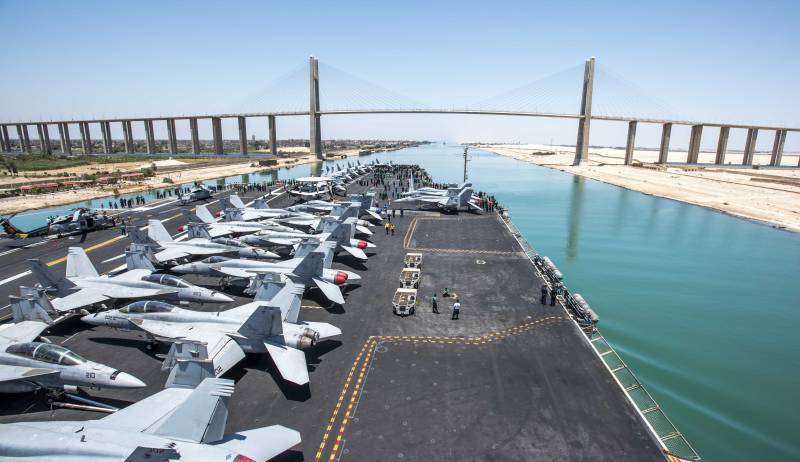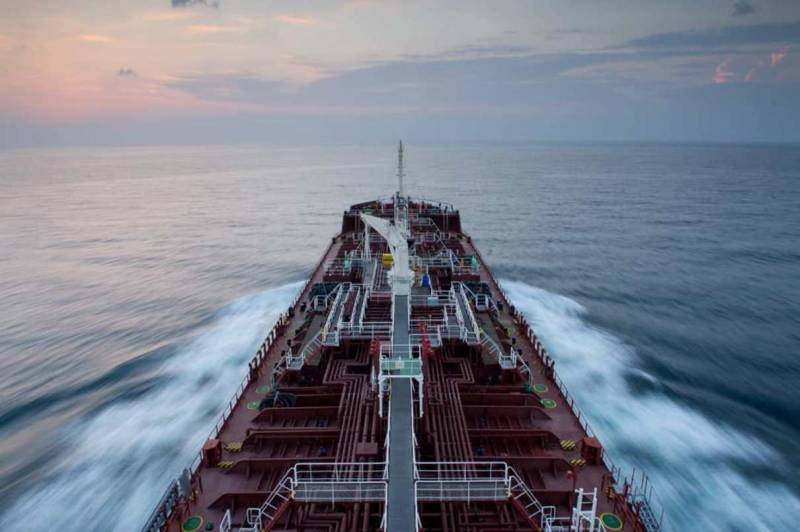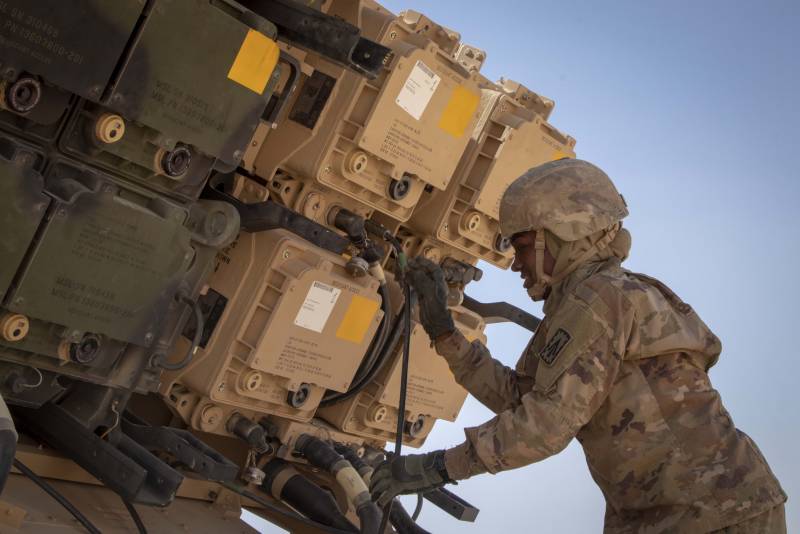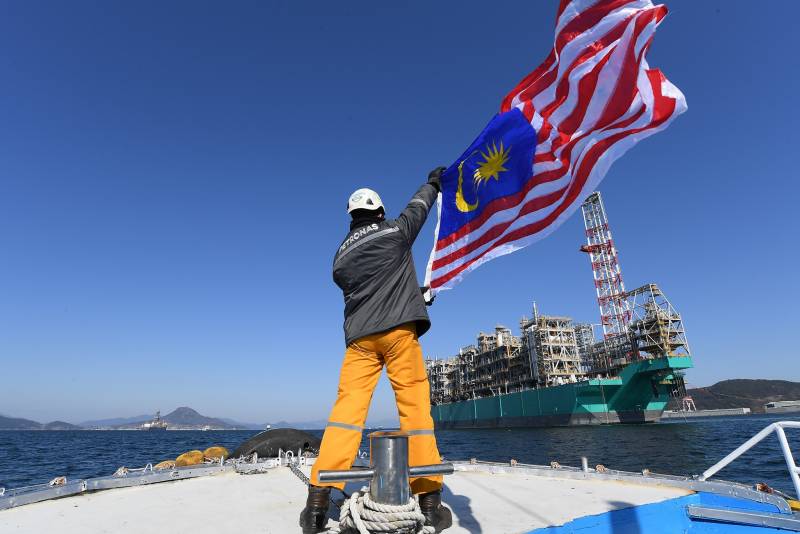America needs the Middle East less and less, Russia needs more and more
Suddenly broke out this fall hard political the crisis in Iraq and the extremely restrained response from the United States to it are highly indicative from the point of view of an outside observer. The most traditional view, prevalent in Russian journalism, is that America is no longer able to fully participate in several strategic directions at once.
Now the country, still the undisputed global hegemon, can afford to use all its power in only one direction. Others will receive parts of the power on the residual principle.
However, this one-sided view also has its drawbacks.
Firstly, America does not really leave the region anywhere, only reducing its presence to transfer the main forces to the Pacific Ocean.
Secondly, the reduction in presence makes an objective sense.
And the meaning is as follows. The long period when it was extremely important for the United States to control the Greater Middle East, which is the outer security circuit for the pearl of the global South - the Persian Gulf, has ended imperceptibly.
This critical dependence became apparent in the seventies of the XX century, when, after the abandonment of the gold standard for the US dollar (due to the decrease in the share of American GDP in the global the economy) the overseas giant urgently needed to fill the key currency of the world with material content.
This content was oil from the Persian Gulf region, whose countries agreed to sell it to the world market exclusively for dollars. For this service, they received not only the standard of living of the countries of the First World, which in itself is a lot, but also protection from all military threats - first from the communist, and then from the Shiite-Iranian.
You don't have to go far for examples. The Carter Doctrine, as well as the even more radical policy of Reagan after the introduction of troops by Moscow into Afghanistan, are directly related to this design. What the Kremlin saw as a purely local conflict and help to a friendly regime, the White House saw as the beginning of the expansion of the communists to the Persian Gulf. Invasions, with the aim not only to cut the continent in two, undermining oil supplies for the US allies in Europe and Asia, but also to threaten the petrodollar, as one of the pillars of American power.
The region now threatened by Soviet troops in Afghanistan is of great strategic importance, as it contains more than two-thirds of the world's oil for export. Soviet efforts to dominate Afghanistan put their military forces within 300 miles of the Indian Ocean and close to the Strait of Hormuz, the shipping route that carries most of the world's oil.
- said in a statement by President Jimmy Carter on January 23, 1980.
To further threats, real or perceived, to the Persian Gulf and the petrodollar, the United States also reacted extremely harshly. Saddam Hussein's invasion of Kuwait in XNUMX prompted an immediate and violent reaction. Although there was no formal military treaty between Washington and Kuwait at that time.
In the modern era, the configuration is changing. The United States withdrew its troops from Afghanistan, followed by Iraq. The Patriot PAC-3 system, which covered the skies over Saudi Arabia, has been collapsed.
By withdrawing the main forces from the turbulent south of Eurasia, America regains its freedom of maneuver. The pursuit of guerrillas and terrorists is a thing of the past. In any case, on the same scale. And the heavy Afghan weight thrown from Uncle Sam's feet will now fall on the shoulders of other countries - the Russian Federation, China and Iran, which must decide how to share such a difficult burden.
The situation is even simpler in the Iraqi direction. Even having completely withdrawn from this country, the United States will continue to influence the situation, having bases in neighboring countries - the Turkish airfield Incirlik, Qatari Al-Udeid, as well as the headquarters of the Fifth Fleet in the island kingdom of Bahrain. It is also important that the only real threat to the government in Baghdad, ISIS (an organization banned in Russia), has been defeated, and its remnants have been driven deep underground. In addition, unlike Afghanistan, Iraq is a landlocked country, which makes it much easier to deliver any aid or reinforcements.
The next outer loop is also okay. It is supported by a number of bases scattered across spaces from Europe to African Djibouti and the British Indian Ocean Territory, where Diego Garcia airfield is located. We must not forget that the Suez Canal is firmly in the hands of a powerful American ally, Egypt.
However, American control would have been unthinkable without a skillful foreign policy. The undoubted success of the Donald Trump administration that left this year was Israel's "streak of recognition" from a number of states in the Middle East and Africa: the UAE, Bahrain, Sudan, Morocco and Chad. At any other time and under different circumstances, such diplomacy would be worthy of the Nobel Peace Prize.
In addition, Trump saw a replacement for the dependence on the Gulf petrodollars in stimulating US own oil and gas production. The current head of the White House, Joe Biden, in turn, relies on alternative energy. However, the implementation of any of the scenarios will inevitably weaken the dependence of the United States on the Arabian monarchies.
In addition, there are many other reasons why the Persian Gulf is losing its importance compared to the seventies. This is not only and not so much about the notorious "green energy", which this autumn showed itself not from the best side. There are a lot of players in the world who are ready to sell crude oil and LNG. If tomorrow the entire Persian Gulf plunges into the chaos of internecine wars, but no catastrophe of the "new 1973" will occur. Tankers and gas carriers from Malaysia, Indonesia, Australia, Russia and other countries will come to the ports of Rotterdam, Antwerp, Yokohama and Busan.
As for Russia or any other power with an order of magnitude less opportunities than the United States, they will undoubtedly receive their benefits within the framework of the new policy of the Middle East states, which allows for a certain "multi-vector" approach.
For example, Egypt (recall that it has been a staunch American ally for almost half a century) purchased Russian Ka-52 attack helicopters, as well as 1300 passenger rail cars for national routes. More recently, this October, the UAE began using the Russian payment system Mir.
However, these indisputable victories should not be overestimated. Yes, the entire Middle East appreciated the assistance of the Russian Federation to the Syrian authorities, which in the summer of 2015 were on the verge of collapse. However, local governments are aware that neither Russia, nor China, nor Great Britain (the former master of the region) can now fully replace the United States, either militarily, technologically or in any other sense. On some issues, yes. But not in general.
That is why neither China nor Great Britain is in a hurry to be overly active here. And the Russian leadership has something to think about, so as not to receive yet another "stab in the back" from those whom the wise rulers too hastily signed up as allies.




Information